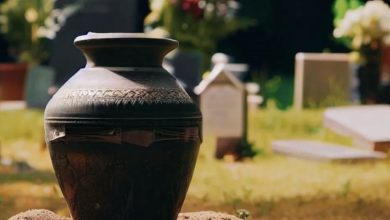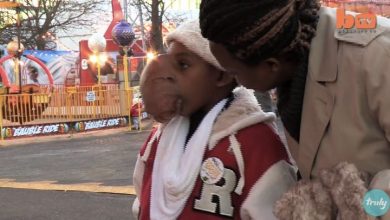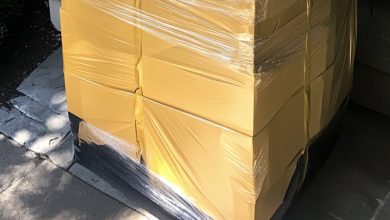He Sold the Business and Cut Me Out but the Real Buyer Was Me

On Christmas Day, my father said he had sold the family company and that I would get nothing. While my older siblings were still smiling, sure my share was gone forever, I stood up and calmly said who had secretly bought it back. Every clink of glass stopped at once.
My father stood at the head of the long mahogany table in our Burlington mansion as if he were giving a verdict. He held his wineglass like a judge holds a gavel. Light from the chandelier caught the cut crystal and threw cold sparkles across the white tablecloth. Outside, slow Vermont snow fell past the tall windows. Inside, the air felt tight, as if it could split.
“I’ve sold Pure Harvest Co.,” he said in a steady, winter-cold voice. “The buyer takes control next month.” He waited just long enough for everyone’s stomach to drop. “And you get nothing. Any of you.”
Bryce’s fork hit his plate. “You what?” he burst out, his face turning red. He always looked like a glossy business photo come to life, but for once the picture cracked.
Lorie’s perfectly glossed lips parted. “That company is our legacy,” she snapped. “You can’t make a move like that without talking to us.”
Down the table, Aspen stared at her phone until the words finally reached her. “My brand is finished,” she whispered. Her influencer world ran on the image of our orchards and our “organic lifestyle.” Without Pure Harvest Co., her posts were just pictures.
My mother, Doris, looked at the cranberry sauce. Her cream sweater swallowed her shoulders. She didn’t speak.
I sat in the middle of the table with a glass of Cabernet. My pulse hammered, but I kept my face calm. I had practiced this moment too many times to show nerves.
“You sold it?” Bryce demanded again. “To who?”
“A private equity group,” my father said. “That is all you need to know. The deal is signed.” His tone said the discussion was over.
Bryce slammed his hand on the table, and the silver rattled. “I put ten years into that company.”
“You are not the only one,” Lorie said through her teeth. “You’re throwing us away for a check?”
Aspen finally put down her phone. “What happens to my product line? To my sponsors? Dad, you can’t do this.”
He smirked, the same curl of his lip I had grown up hearing and hating. “Life isn’t fair. You will land on your feet. Or not. It isn’t my problem now.”
They were coming apart. The golden children who spent years soaking up his approval suddenly looked small and scared.
I took a slow sip of wine, put the glass down, and stood.
“Who is the buyer?” Bryce shouted. “I want a name.”
My father’s eyes slid past me the way they always had, as if I were still the girl who fetched coffee and printed reports.
I met his gaze and didn’t look away. “That would be me,” I said.
The room lost its sound. It felt like the air left the space.
Bryce frowned. “What?”
“I am the buyer,” I said again. “Or, to be exact, my company is. Greenwave Organics.” I kept my eyes on my father. “You signed the documents with my alias. J. M. Harper.”
For the first time in my life, I saw something like doubt cross his face.
“You?” Lorie choked out. “You left with a suitcase nine years ago. You don’t buy companies like Pure Harvest.”
“You used to file inventory reports,” Bryce said with a scoff. “You don’t run anything big enough to buy us.”
Aspen’s phone slid from her fingers and hit the floor. “You’re Harper?” she whispered.
I let their disbelief hang.
“Sit down,” my father snapped. “Stop this nonsense. This isn’t a game, Marina. This is real money.”
“It is,” I said. “It is also about the company Grandma built and you emptied out. And about how you just sold it to the daughter you never thought was worth hearing.”
If you want to understand how we reached that night, you have to go back to the orchards and the woman who saw me long before anyone else did.
We grew up just outside Burlington. The white clapboard house with black shutters and a wraparound porch sat on a small rise. Behind it, the apple trees rolled down the hill toward the Green Mountains. In spring, the blossoms made the air taste sweet.
Pure Harvest Co. began with my grandmother, Evelyn Brooks. Most people called her Eve or Mrs. Evans. I called her Grandma.
There’s a photo in the foyer of her in a denim jacket and flannel, hair tucked under a worn cap, hands stained by soil. She built the company on one simple rule: grow food honestly, treat people fairly, and don’t poison the land feeding you.
When I was seven, I followed her through the rows, almost running to keep up. She would part the branches so I could see the tight green fruit starting to form.
“You can’t rush good things, Marina,” she would say. “They take time, work, and a little faith.” She would polish an apple on her sleeve and hand it to me. “You have a sharp mind. Don’t let anyone tell you different. One day this place will need a thinker, not just fast talkers.”
Inside the house, the hierarchy was written into the wood.
My father, Stanley, was the iron voice that filled rooms. My mother, Doris, moved behind him like a quiet shadow in soft sweaters. Bryce walked like a future CEO even in high school, wearing suits to cookouts and tossing out phrases like “vertical integration.” Lorie turned cruelty into a lifestyle. Aspen floated on the edge, more connected to her phone than to anyone at the table.
And me? I was the middle daughter, the one who refilled glasses while the “real heirs” planned the future. Every time I spoke up at dinner, my thoughts disappeared into the air.
“We should look at Canada,” I would say. “We’re near the border. There are co-ops in Montreal—”
“We’re not talking about that,” my father would cut in. “Bryce, update me on the New Hampshire distributor.”
Mom would watch her wine, Lorie would smirk, Aspen would scroll, and I would pretend my chest didn’t burn.
The first clean cut came at seventeen. I spent months building a plan to expand into Canada. I mapped routes, listed regulations, calculated costs. I called co-ops pretending to do a school project and turned their answers into numbers in Grandma’s old ledger.
I brought the binder to dinner and set it in front of my father. He frowned. “On what?”
“On a move into Canada,” I said. “I found partners, projections—”
Bryce laughed. “Playing CEO again?”
“Let her speak,” Grandma said.
I explained everything. Dad’s face stayed blank.
“This is… ambitious,” he said. Before I could answer, Bryce jumped in. “We’re already looking at that,” he said smoothly. “Lorie and I have a plan.”
I blinked. “No, you don’t. I’ve done this alone for months.”
Lorie lifted her glass. “Your numbers are cute,” she said. “But you missed the real-world factors.”
I felt heat climb my neck. “This is a solid plan.”
“Enough,” Dad said. “If they are working on it, help them. Share your notes. We move as one. Bryce will take over. You will support him.”
Support him. I swallowed the hurt and said yes.
Weeks later, I heard my own words coming back through his office door. Bryce and Lorie presented my plan, maps and all. Dad praised their “initiative.” Something inside me went hollow.
I confronted them after. “You stole my work.”
Bryce shrugged. “Prove it. What’s yours is the family’s.”
Lorie smiled without warmth. “You’re not built for this. Be grateful we read your homework.”
That night I cried until my head hurt. Grandma sat beside me smoothing my hair. “They stole from me,” I whispered. “I know,” she said. “But ideas are seeds. They can take your fruit, not your mind. They act like you’re small because they’re afraid you aren’t.”
I didn’t believe her then. I would later.
By the time cancer took her six years later, I was finishing a double major in business and environmental science. Hospitals smell like antiseptic and endings. Between classes and her bedside, I wore myself thin.
“Don’t let them dim your light,” she told me, her hand cold in mine. “When they lock the door, build your own house.”
“I don’t know how,” I said. “You will,” she answered.
We buried her on a hill above the trees she planted. Wind cut through my coat. I held her cracked leather ledger and promised I would stop begging for a seat at their table. I would build my own.
After graduation, I tried one more time. I took a low job at Pure Harvest and told myself it was a start. I poured myself into another idea I loved—prepackaged organic meal kits and snacks, real ingredients in compostable containers, the kind of food busy families could trust.
I paid for prototypes with my savings and walked into Dad’s corner office with a binder. He looked at the first page, closed it, and said, “We’re a farm brand, not a convenience store.” Bryce joked about “drive-thru apples.” Lorie said I didn’t understand our brand. Mom stared at her mug.
I booked my own small meeting, laid out the samples, and clicked through my slides. Lorie walked in halfway, called it a gimmick, and left. Dad didn’t come. A week later, they reassigned me to inventory only—no strategy, no meetings.
They didn’t just reject the idea. They cut me out of the future.
That night, I packed a single bag in my old bedroom. On the bottom I placed my cap and gown. On top I put Grandma’s ledger. Snow tapped the window. I looked at my reflection and said, “You’re not running away. You’re choosing something else.”
In the morning I took a Greyhound to Montpelier. My studio apartment sat above a hardware store. The radiator hissed. The table was wobbly. It was mine.
I took freelance work—marketing blurbs for farms, supply-chain spreadsheets for tiny brands—and sent every spare dollar to rent and heat. At night I opened the ledger and my worn laptop and started Greenwave Organics. It was the same idea my father had thrown away, reshaped into a clean distribution platform that connected small farms to city markets, with space for prepackaged products later.
I worked under a pen name: J. M. Harper. As Marina Evans, I was the invisible middle daughter of a regional CEO. As Harper, I was an email address and a set of numbers.
Farmers didn’t care about my last name. They cared that I showed up, listened, and understood crops and freight. Retailers cared that I delivered what I promised.
My best friend, Ellie Thompson, kept me breathing. We met freshman year, and she moved to Montpelier to work at a small design shop. She carried my bag up three flights and told me, “You’re onto something.”
By the second year, Greenwave had shape. I signed co-ops, negotiated with small trucking partners, and launched subscription boxes of Vermont produce to city apartments. A mid-size grocery chain in Burlington signed on with Harper. I sat on my apartment floor and laughed until I cried. Ellie handed me a beer and said, “To Greenwave.”
By twenty-five we were stable. I hired a tiny team and rented a bigger place. People began to whisper about Greenwave Organics and the mysterious Harper.
That’s when Pure Harvest noticed me without knowing it was me. An investor named Todd Brooks in Boston got interested. He liked my numbers, liked my plan, offered two hundred thousand for a minority stake. Then he pushed the meeting once, then again.
When we finally met, he looked uneasy. “I’ve heard rumors,” he said. “Anonymous posts and emails saying you miss deliveries, fudge numbers, mistreat farmers. I don’t believe them, but I have to be careful. I’m going to pause.”
I left with my stomach on the floor. Ellie listened and said, “Someone is hitting you on purpose.” A tech friend from UVM traced the “anonymous” posts to a Burlington IP—Pure Harvest Co.—with a Lorie.evans address tied to it and another chain linked to Bryce.
My own siblings were trying to choke my company, not knowing who I was.
The damage was heavy. The investor left. Others pulled back. I let half my team go and drove routes myself. “We’ll get through it,” Ellie said as we rebuilt the website and made our numbers even more public.
We did survive. The anger inside me turned from pain into purpose. I stopped trying to earn space at Pure Harvest. I started planning to take the whole table.
I studied their network and found the backbone: Rebecca Hall in Rutland, Michael Grant in New Hampshire, and Sarah Lee in Boston logistics. I met each one as Harper.
With Rebecca, I sat at her kitchen table and went through every line of her contract. “They’re stretching your payments,” I said. “You’re carrying their risk.” I offered better margins and faster pay. Within a month, she signed.
Michael was loyal to my father. We met at a diner. I showed what his numbers would look like with Greenwave. “If this fails, my people suffer,” he said. “So do mine,” I answered. “I’m not asking for a gamble. Let the math speak.” Two weeks later, he called to say yes.
Sarah had no patience for fluff. I promised exclusive routes, a share of our growth, and real say in operations. “You think you can outpace Pure Harvest?” she asked. “I don’t think,” I said. “I know. They lean on a legacy they didn’t build. I’m building because I have to. That’s different.” She smiled and asked for the paperwork.
When those contracts were in place, a clause my grandmother had demanded years ago turned against Pure Harvest. Their old supplier veto only held if they kept majority control over key partners. They no longer did. The clause snapped off like a brittle twig.
Ellie shook her head. “You are playing chess,” she said. “They are chewing the pieces.” I smiled. “They taught me the board. They just never planned for me to sit on their side.”
Quietly, Greenwave grew while Pure Harvest wilted. By the time I turned thirty-two, we were the reason Dad was looking for a way out.
In early December, I got a heavy cream invitation to family Christmas. I hadn’t been home in nine years. Around the same time, a New York firm reached out to Harper: rumors said Pure Harvest wanted to sell. Did Greenwave want in?
I did more than want in. We built a deal. The firm would help fund the purchase. Greenwave would take control. I would run the combined company. Every document listed the buyer as Greenwave Organics, represented by majority owner and CEO J. M. Harper. The board sounded tired and afraid. My father saw a parachute. He never asked who Harper was.
Two days before Christmas, we closed.
On Christmas morning, I drove from Montpelier through gray sky and salted roads. I tucked Grandma’s photo into the visor and tapped it at every light. “This is for you,” I said.
The house looked the same—stone columns, wreath on the door, trees wrapped in white lights. It smelled like evergreens and the same expensive candle my mother always burned.
“Well,” Bryce said, forcing a grin when I walked into the dining room, “look who came back.” “Marina,” my mother breathed. “You look older.” “That happens,” I said.
We ate brittle small talk. Then Dad rose with his glass. “I have an announcement,” he said, and the room hushed the way it always had.
“I’ve sold Pure Harvest Co. The buyer takes over next month.” You know the rest. Bryce shouted. Lorie protested. Aspen panicked. Mom looked at her plate. “What about us?” Bryce yelled. “Our shares?” “There is nothing to inherit,” Dad said. “The proceeds are allocated.”
“Allocated to who?” “Not your concern,” he replied.
“Who is the buyer?” Bryce demanded.
“That would be me,” I said.
I showed them the contract. I told them who Harper was. “You watched numbers and signed the parachute,” I said. “You didn’t see whose hands you were giving the company to.”
“You tricked him,” Lorie said, shaking. “You lied.”
“You mean like you lied about my company online?” I asked. I put a folder on the table with proof that the smear posts came from her computer and from Bryce. Then I slid another folder to my father: records showing two hundred thousand dollars moved into Bryce’s “personal investments.” He claimed it was timing and he would have put it back. The bank statements said otherwise.
“You’re lucky I’m not calling the police,” I told them. “Yet.”
“You can’t fire us,” Lorie said. “We built this.”
“Grandma built this,” I answered. “You turned it into a machine. As of the first of the year, I’m the CEO. I will decide who stays.”
Aspen stared at me with wet eyes. “Why are you doing this?”
“Because you erased me,” I said. “Because you stole my work, smeared my company, and treated everyone but yourselves like extras.” I picked up my bag. “Enjoy dinner. It’s the last one you’ll have as the rulers of Pure Harvest.”
“If you leave you are no daughter of mine,” my father said. I paused in the doorway. “You decided that years ago,” I said, and left.
Taking over wasn’t pretty. It was long meetings and hard decisions. On my first day, I stood in the auditorium. “Some of you remember me as the kid who refilled coffee,” I said. “My name is Marina Evans. I also founded Greenwave Organics. As of last week, I am your new CEO.”
“This company began with my grandmother,” I told them, pointing at her photo. “She believed in honest food and fair treatment. Somewhere we lost that. I’m not here to erase the good. I’m here to fix what’s broken.” I explained how we would merge systems, pay farmers faster, raise safety standards, and invest in people. “There will be changes,” I said. “Some will hurt. They will also be fair.”
Bryce and Lorie stormed in later. “You’re out of your depth,” Bryce said. “No,” I said. “I’m out of patience. You’re out of a job.” Embezzlement and coordinated defamation are fireable. I offered mercy—no police, just a clean exit with no severance. They signed with shaking hands.
Aspen came alone. “I lost every sponsor,” she said. “No one wants an Evans. I need work.” “We don’t need a social media lead,” I said. “We need people who understand the work. There are openings in the warehouse.” Pride fought with need. “I’ll take it,” she said. I saw her sometimes on the dock in a fluorescent vest, cheeks red from the cold. I didn’t make it easier or harder. The work would do that.
Mom called once. “He’s miserable,” she said of my father. “He says you betrayed him.” I looked out at the orchard. “He sold Grandma’s legacy for a parachute,” I said. “I bought it back. If he’s miserable, that’s his problem.” “We should still be a family,” she whispered. “We could have been,” I said. “You had years to speak. You stayed quiet.” She said she was sorry. I said I was too.
Word spread that my father moved to Florida and spent his days on a golf course telling anyone who would listen that his children were ungrateful. I focused on the work.
We rebranded Pure Harvest and Greenwave under a single name, keeping Grandma’s original apple-tree sketch and pairing it with clean modern type that Ellie designed. We launched the prepackaged organic meals I had pitched years before, and they sold out. We expanded to the Midwest and the West Coast, opened small offices in Brooklyn and Chicago, and signed new farmers on fairer terms.
I also started the Evelyn Brooks Foundation. Each year we choose young people in sustainable food and give them seed money, mentorship, and a real network. At the first retreat, held in a renovated barn looking over the rows, I told them, “Some of you have families who think your ideas are cute. Some of you have families who fear your ideas. I had both. You do not need permission to build something real. You need stubbornness and a little help. This is your help.”
A young farmer pulled me aside. “My dad says organic is a fad,” he said. “This grant might save us long enough to prove him wrong.” “Make it count,” I told him. “And when he’s eating your sweet corn in ten years, try to say ‘I told you so’ only once.”
When everyone left, I walked through the trees alone. Snow clung to the branches. I stopped at the hill where we buried Grandma and pressed my gloved hand to the stone. “I did it,” I said. “Not perfectly. Not kindly every time. But I did it.”
This stopped being about revenge a long time ago. Revenge got me through nights when the account was low and the rumors were loud. But standing there, I knew what it really was. Justice—for the girl talked over at dinner, for the student whose plan was stolen, for the workers and farmers squeezed by someone else’s greed.
My family tried to erase me. They failed. I built something from the pieces they threw away, not because they made space for me, but because I refused to stay small.
On Christmas Day, my father said he had sold the family company and that I would get nothing. He was wrong. I didn’t just get the company. I took it back, and I finally turned it into what it should have been from the very start.










